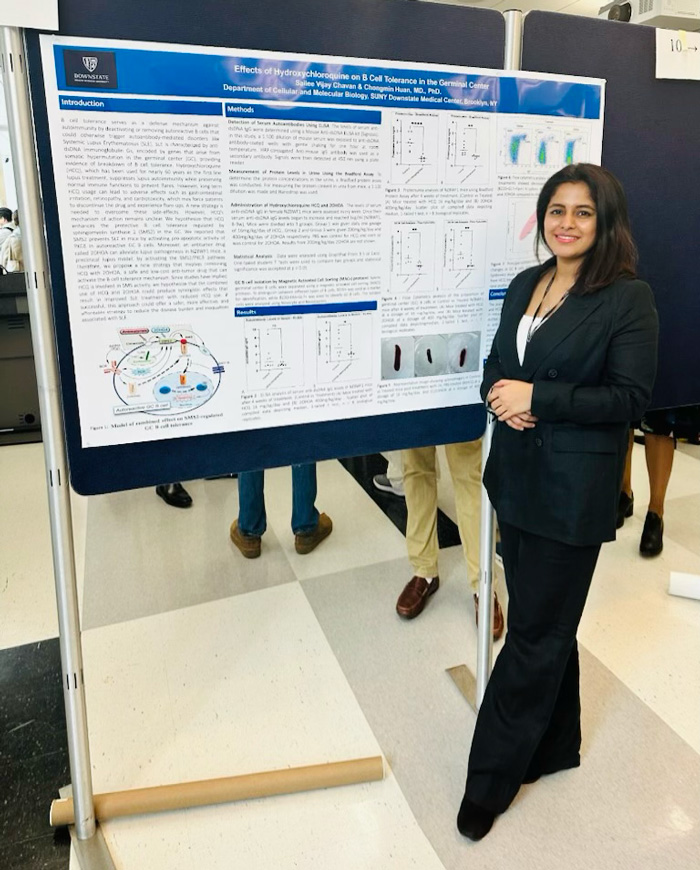Breakthrough Research Targets a Safer Cure for Lupus
By Office of the President | Sep 3, 2024
SUNY Downstate has long been at the forefront of advancing the diagnosis, treatment, and research of systemic lupus erythematosus (SLE), commonly known as lupus. This complex chronic autoimmune disease disproportionately affects women of color and can severely impact various organs, including the kidneys, heart, and joints.
Although medications, steroids, and immunosuppressants are available to manage lupus, they often come with significant side effects. These side effects frequently force patients to reduce or discontinue treatment, which can trigger dangerous flare-ups of the disease.

Chongmin Huan

Christopher Roman

Ellen Ginzler
In light of these limitations, groundbreaking research led by Chongmin Huan, M.D., Ph.D., Assistant Professor of Cell Biology, and Christopher A. J. Roman, Ph.D., Associate Professor and Chair of Cell Biology, offers new hope for those affected by lupus. Their research focuses on protein kinase C delta (PKCδ), a molecule crucial for eliminating harmful B cells involved in lupus. The proper function of PKCδ depends on an enzyme called sphingomyelin synthase 2 (SMS2). This enzyme is often found in lower levels in lupus patients, impairing the body’s ability to eliminate these harmful cells.
The team’s findings are promising. By enhancing the activity of the SMS2/PKCδ pathway in mouse models, they demonstrated that it can reduce lupus symptoms without causing the broad immune suppression associated with current treatments. This innovative approach could pave the way for new treatments that are both more effective and have fewer side effects, offering a significant improvement over existing therapies.

Sailee Chavan, M.S., MD-PhD
Annual Research Day
This breakthrough is the result of dedicated efforts by a team that includes Dr. Roman, Dr. Huan, graduate student Sailee Chavan, M.S., MD-PhD, student Shreya Desikan, and Ellen M. Ginzler, M.D., MPH, Distinguished Teaching Professor of Medicine and former chair of Rheumatology. Published in MDPI Biomedicine (Volume 12, issue 6), their work significantly advances our understanding of lupus and points to new therapeutic strategies that could spare patients from the harsh side effects of current treatments.
Complementing this research, the specialized lupus clinic at University Hospital at Downstate continues to be a vital resource for patients in Central Brooklyn impacted by this disease. Dr. Ginzler, a pivotal figure in lupus research, led the largest multicenter, investigator-initiated lupus trial ever conducted by independent researchers. She contributes to several essential lupus organizations, including the Systemic Lupus International Collaborating Clinics (SLICC).
Supported by a Downstate CREST (Clinical Research Scholars Training) Phase II Pilot grant award, this research underscores Downstate’s ongoing leadership and commitment to improving the lives of those affected by lupus.